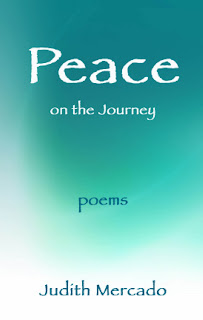
Recently, I found myself vexed by a discussion which turned on religious belief. It is easy to get vexed when the subject of religion comes up, you say? Sure, except the irony for me was that instead of my being the secular voice holding off convinced religious believers, I was the “religious” voice trying to hold my own with decidedly secular nonbelievers.
As I explained in my earlier post Religion, My Writing, and Me, I probably reside in the interstices between conventional belief and nonbelief. So to have to stand up for religion was unexpected. But there I was with the members of my long-time book discussion group explaining why I felt they were shortchanging the validity of religious belief. Myths and religion, I tried to tell them, are not simply infantile representations of truths eventually reducible to scientific axioms.
At one point in the discussion, I felt so frustrated that I found myself doodling in Spanish, convenient because no one around me could understand it. I found that scrap of paper while cleaning my desk the other day, and here is part of what I had written: “Mythology helps one navigate the space between the known and the unknown. It can exist outside the confines of intellectual truths that cannot and may not ever capture reality in its entirety.”
Then I discovered that Joseph Campbell in “The Historical Development of Mythology” had said it much more elegantly than I:
At one point in the discussion, I felt so frustrated that I found myself doodling in Spanish, convenient because no one around me could understand it. I found that scrap of paper while cleaning my desk the other day, and here is part of what I had written: “Mythology helps one navigate the space between the known and the unknown. It can exist outside the confines of intellectual truths that cannot and may not ever capture reality in its entirety.”
Then I discovered that Joseph Campbell in “The Historical Development of Mythology” had said it much more elegantly than I:
“… whenever a myth has been taken literally its sense has been perverted; but also, reciprocally, that whenever it has been dismissed as a mere priestly fraud or a sign of inferior intelligence, truth has slipped out the other door.”
Mythology and Religion are not necessarily synonymous, but I believe that the above Campbell quote applies to both. Many of us are probably somewhere in the middle of the spectrum of religious belief. If I am any indication, we in the middle may usually choose to remain silent about personal religious beliefs in the face of opposing views. My experience with my book discussion group was definitely anomalous for me.
That experience made me realize how real-life silence about personal religious and spiritual beliefs can also be reflected in one's writing. To be clear, I do not embrace a style of writing which engages in proselytizing or hagiography. I am simply suggesting that fine literary work can incorporate spirituality in the seamless way it does so in ordinary life. Marilynne Robinson has done it. Graham Greene has done it. So has Chinua Achebe. Why do I have the feeling, though, that today they represent the exception rather than the rule?
I end with the following questions:
o If you write fiction, do you find it easy to incorporate religion and spirituality?
o If you write fiction, do you find it easy to incorporate religion and spirituality?
o How is religion best incorporated in a fictional work? Should it be treated any differently than any other subject?














